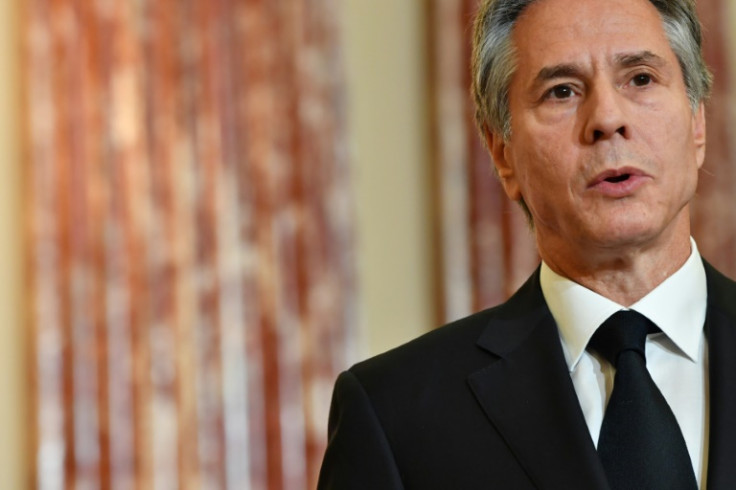Blinken To Begin Latin American Tour On Monday In Colombia

US Secretary of State Antony Blinken begins a tour of Latin American countries on Monday in Colombia, at a time when several key regional allies have recently elected leftist presidents.
The trip by the top US diplomat, whose country has been more focused in recent times on Asia and on the war in Ukraine, appears aimed partly at addressing any concerns of US neglect for its hemispheric allies.
After Colombia, Blinken will travel to Chile and Peru.
His trip begins a day after a hard-fought first-round election in Brazil, where voters faced a stark contrast between far-right President Jair Bolsonaro and leftist challenger and former president Luiz Inacio Lula da Silva. It will go to a runoff October 30 after Bolsonaro did surprisingly well against the heavily favored Lula.
Despite speculation that Bolsonaro might not accept an electoral defeat, Blinken said Sunday that the United States shares "Brazil's confidence that the second round will be conducted in the same spirit of peace and civic duty."
Blinken's tour also comes on the heels of a prisoner exchange between the US and Venezuela, reflecting a cautious warming between the two despite the fact that Washington has never recognized the disputed 2018 re-election of Nicolas Maduro as president.
"We have never had stronger relations with this hemisphere," Brian Nichols, US assistant secretary of state for Western Hemisphere Affairs, told journalists on Friday.
"We are not judging countries based on where they fall on the political spectrum but rather their commitment to democracy, the rule of law, and human rights," he said.
In Bogota on Monday and Tuesday, Blinken -- making his second visit to Colombia as secretary of state -- will meet with President Gustavo Petro, who in early August became the country's first leftist president.
Aides said the two are expected to discuss drug trafficking and its impact on security, health and the environment, as well as migration. US officials have called Colombia's protection of migrants fleeing poverty and unrest in Venezuela a "model for the region."
In August, when Petro took office, American officials said they were prepared to hold "open and honest" discussions with him on the US-backed war against drugs. That effort has failed, Petro has said, calling instead for efforts to reduce cocaine demand in developed countries.
Colombia, which has suffered through decades of civil war fueled in part by drug trafficking, is the world's leading producer of cocaine, and the US is its principal market.
Blinken will then travel to Santiago on Wednesday for talks with Chile's leftist president, Gabriel Boric.
Boric, a bearded 36-year-old who once led student protests, came to power in March.
The US diplomat will wind up his trip in Lima on Thursday and Friday, where he will meet Peru's socialist president Pedro Castillo, a former union leader who is the son of peasant farmers. Since coming to power last year, Castillo has faced multiple investigations for corruption and influence-peddling.
While in Lima, Blinken will take part in the yearly general assembly of the Organization of American States.
The OAS gathering, bringing together member countries from throughout the hemisphere, has a crowded agenda.
It will consider a resolution urging an end to "Russian aggression in Ukraine" -- though some Latin American capitals have expressed hesitance -- as well as resolutions on rights abuses in Nicaragua and on the dire economic and political situation in Haiti.
Throughout his trip, Blinken will raise US concerns about democracy, immigration, human rights and climate change, according to a State Department statement Friday.
Blinken is also expected to flesh out some of the themes of the "Summit of the Americas" held in June in Los Angeles. It brought hemispheric leaders together and launched a partnership on immigration.
© Copyright AFP 2024. All rights reserved.





















